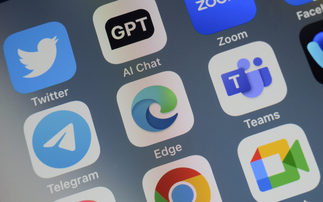Former US Secretary of State also holds up 'US and other western democracies' as shining examples of how to keep the internet open and promote freedom of speech, despite snooping revelations
Former US Secretary of State Hillary Clinton has come out in favour of face to face contact, suggesting that video conferencing technologies are far less effective at building relationships and sol...
To continue reading this article...
Join Computing
- Unlimited access to real-time news, analysis and opinion from the technology industry
- Receive important and breaking news in our daily newsletter
- Be the first to hear about our events and awards programmes
- Join live member only interviews with IT leaders at the ‘IT Lounge’; your chance to ask your burning tech questions and have them answered
- Access to the Computing Delta hub providing market intelligence and research
- Receive our members-only newsletter with exclusive opinion pieces from senior IT Leaders






















